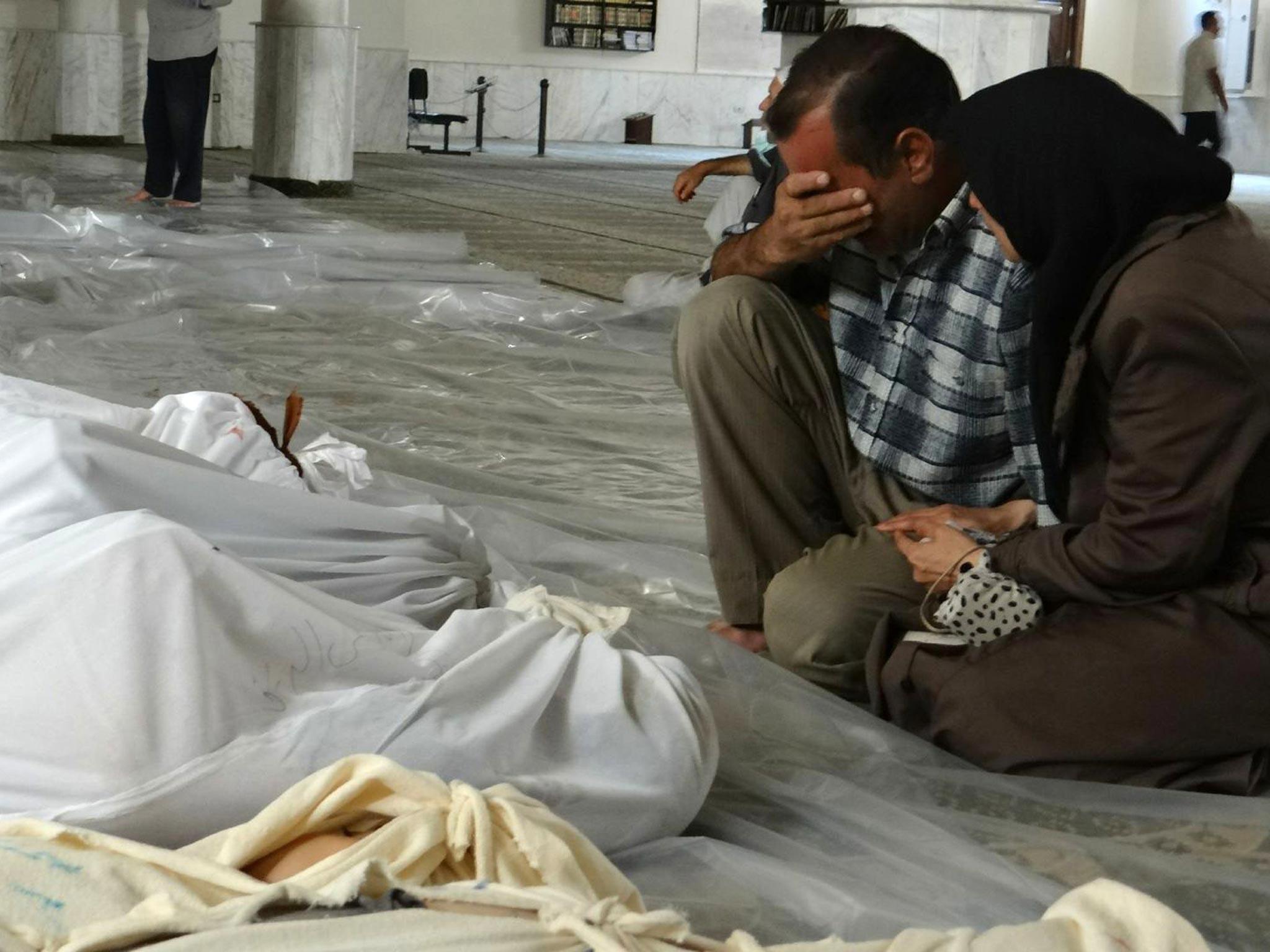Is it right to use a picture of dead children on a front page? In the case of Syria, yes
It would be inhuman not to shudder at the Mirror's front page. The image may even haunt us. But that doesn't mean it was wrong to print it

Your support helps us to tell the story
From reproductive rights to climate change to Big Tech, The Independent is on the ground when the story is developing. Whether it's investigating the financials of Elon Musk's pro-Trump PAC or producing our latest documentary, 'The A Word', which shines a light on the American women fighting for reproductive rights, we know how important it is to parse out the facts from the messaging.
At such a critical moment in US history, we need reporters on the ground. Your donation allows us to keep sending journalists to speak to both sides of the story.
The Independent is trusted by Americans across the entire political spectrum. And unlike many other quality news outlets, we choose not to lock Americans out of our reporting and analysis with paywalls. We believe quality journalism should be available to everyone, paid for by those who can afford it.
Your support makes all the difference.In a previous, editing incarnation, part of my job was scrolling through pages of pictures and thinking about which ones would work with our stories.
That was often fun, but sometimes it was horrible: the picture agencies don’t much censor the images they provide, and after an atrocity there are bound to be some that are hard to look at. The cliché of the heartless journalist becomes a bit true in those circumstances, and a bit truer every time you do it. If you pause to think in detail about the human tragedy behind each picture, you’ll never get the paper out.
Even so, the report on Syria that opened Wednesday night’s BBC News at Ten sickened me. At one point, as a milky-eyed child convulsed on the floor under the apparent influence of poison gas, I involuntarily turned away. “This report contains upsetting pictures from the start,” George Alagiah had warned. Upsetting doesn’t begin to express it.
You can’t really give a warning about a front page. Nonetheless, many of this morning’s newspapers ran with the same kind of image. The most shocking choice was the Daily Mirror’s. ‘NOW THEY’RE GASSING CHILDREN’, the headline ran, below a picture that might in other circumstances be adorable: nine infants, their eyes peacefully closed, under what looks like a blanket. And then you see that they are packed in ice.
It would be inhuman not to shudder. The image may even haunt us. Does this mean that it was wrong to print it? Did Jeremy Bowen’s report go too far? My answer to both questions is no, and I don’t think that anyone who believes that the media is about more than entertainment can sensibly think anything different. It is often gratuitous to run with pictures of the dead, all the more so when the dead are children, and it is a decision that must never be taken lightly. It’s wrong to capitalise on our disgust without good reason. But if there was ever a story on which it was justified, this is the one.
More than 100,000 people have already died in Syria, the UN says. More are dying every day. And yet, most of the time, it’s off the agenda. Whether or not one thinks military action is the answer, there seems little doubt that our inattention emboldens the regime, making horrors like yesterday’s (though there is no conclusive proof of who did it yet) progressively more likely. I thought the Independent’s inside headline was particularly acute: ‘shocking images could mark terrible new stage in conflict’, it read. And it’s a terrible truth: the pictures make us pay attention to the story in a way that we simply wouldn’t without them.
There are those who argue that children will see these pictures in the newsagents, that there is something ghoulish about printing them, that there must be another way of telling the story. But there isn’t. If the distressing price of that impact is that some children will have some bad dreams, so be it. Seeing it for yourself matters. We spend all our time trying to look away from Syria. Sometimes we should be forced to see it.
Join our commenting forum
Join thought-provoking conversations, follow other Independent readers and see their replies
Comments